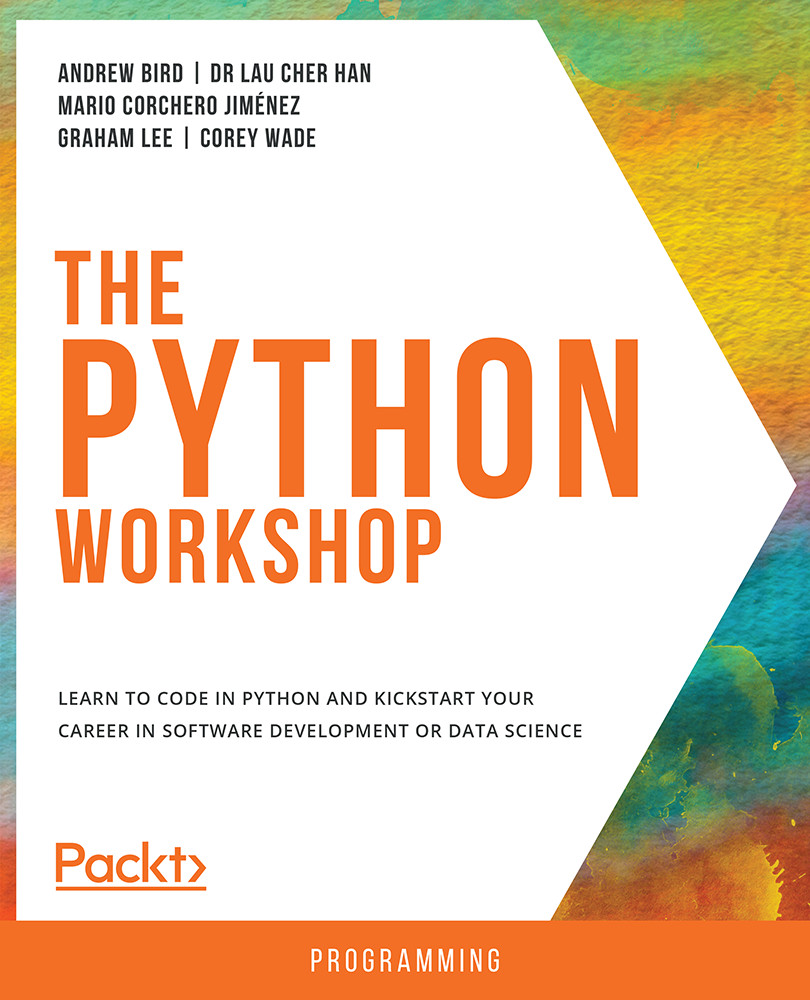-
Book Overview & Buying

-
Table Of Contents

The Python Workshop
By :

The Python Workshop
By:
Overview of this book
 Free Chapter
Free Chapter
 Sign In
Start Free Trial
Sign In
Start Free Trial


 Free Chapter
Free Chapter
In the programming world, a bug refers to defects or problems that prevent code or programs from running normally or as expected. Debugging is the process of finding and resolving those defects. Debugging methods include interactive debugging, unit testing, integration testing, and other types of monitoring and profiling practices.
Defensive programming is a form of debugging approach that ensures the continuing function of a piece of a program under unforeseen circumstances. Defensive programming is particularly useful when you require our programs to have high reliability. In general, you practice defensive programming to improve the quality of software and source code, and to write code that is both readable and understandable.
By making our software behave in a predictable manner, you can use exceptions to handle unexpected inputs or user actions that can potentially reduce the risk of crashing our programs.

Change the font size
Change margin width
Change background colour